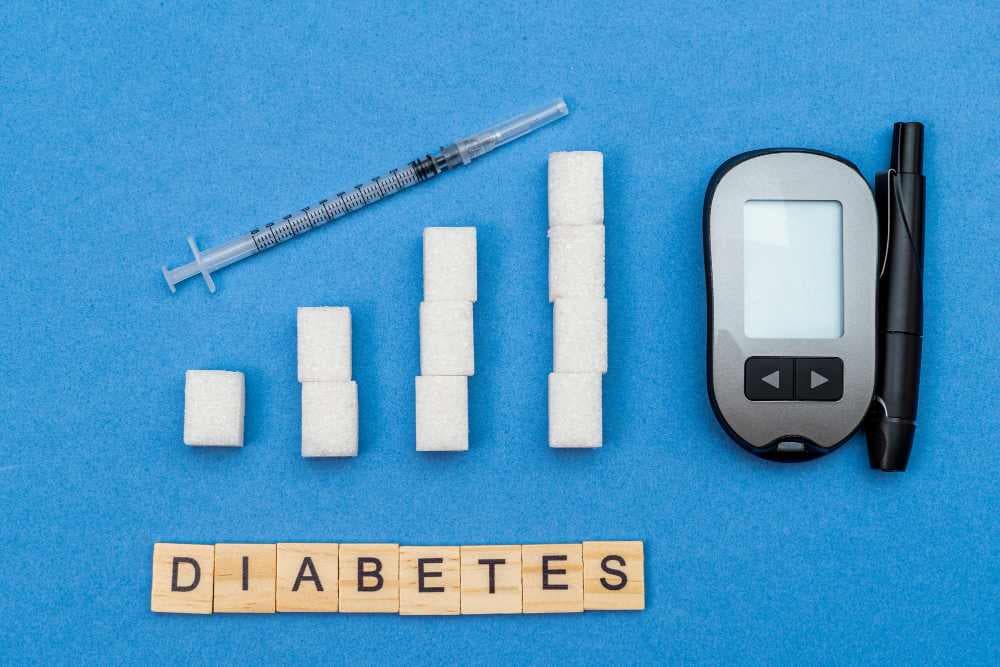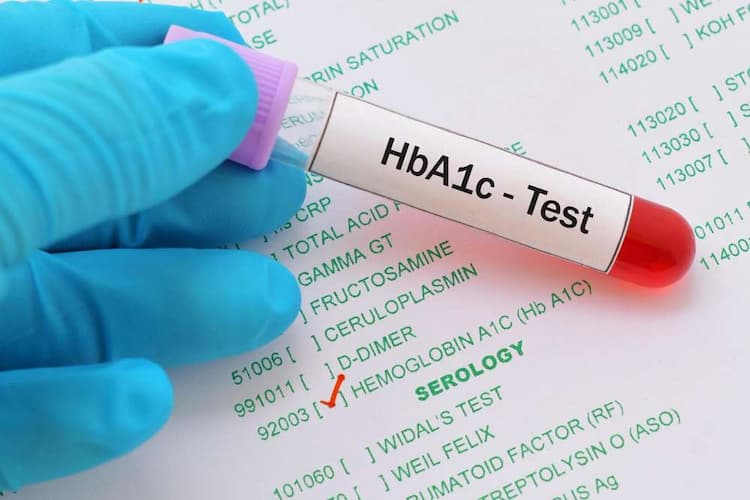Why Does Diabetes Need Regular Monitoring?

Medically Reviewed By
Dr. Ragiinii Sharma
Written By Kirti Saxena
on Aug 21, 2023
Last Edit Made By Kirti Saxena
on Mar 15, 2024

If you are a diabetes patient, then monitoring your diabetes is crucial to avoid any severe health risks. Diabetes is a medical condition that affects how the body processes glucose and causes high blood sugar levels.
Monitoring blood sugar is important when you have diabetes, especially if you use insulin. Diabetes management revolves around controlling blood sugar levels within a target range. Regular monitoring allows people to track their blood glucose levels and understand how their diet, physical activity, medication, and other factors impact their diabetes control. This data provides valuable insights for making good lifestyle choices and treatment. Here in this blog, we will discuss why it is important to monitor blood glucose levels in diabetes.
Factors that affect Blood sugar level
Blood sugar levels are affected by a combination of factors, from dietary choices and physical activity to hormonal imbalances and certain medical conditions. Understanding these factors can help people with diabetes and those at risk of high or low blood sugar levels manage their health effectively. Here are some key factors that affect blood sugar levels:
- Consuming carbohydrates
- Not taking enough insulin
- Taking corticosteroid medications
- Smoking
- Dehydration
- Puberty
- Sleep Pattern
- Alcohol consumption
- Diet
- Illness, surgery, or stress
- lack of physical activity
Importance Of Monitoring Blood Glucose Levels Periodically:
Regularly checking and tracking blood sugar levels offer numerous benefits that help diabetic patients to take control of their healthy life. It helps to identify patterns in blood sugar levels throughout the day and across different activities. People can adjust their meal planning, medication, and exercise routines by recognizing these patterns to achieve better glucose control. Here are some critical advantages of monitoring your diabetes regularly:
- To check blood glucose level: Blood glucose monitoring allows people with diabetes to recognize the pattern of blood sugar levels and keep within the target range recommended by healthcare providers. Maintaining stable blood sugar levels helps prevent short-term complications like hyperglycemia (high blood sugar) or hypoglycemia (low blood sugar). It reduces the risk of long-term complications associated with diabetes.
- Early Detection to avoid risks: Frequent blood glucose testing helps detect fluctuations in blood sugar levels and enables people to make immediate adjustments in their lifestyle, diet, or medication to prevent health issues.
- Reduced Risk of Complications: Regular blood glucose testing helps to reduce the risk of diabetes-related complications, such as heart disease, kidney problems, and vision impairment.
- Personalized Treatment Plans: With regular monitoring and testing, your healthcare can provide customized treatment plans for your medical condition. They can recommend medication adjustments, dietary modification, or exercise to improve diabetes management.
- Improved Quality of Life: Well-managed blood glucose levels improve overall health and well-being. People with diabetes who regularly monitor their blood sugar often experience increased energy levels, better mood, and enhanced overall quality of life.
- Adjusting Medications: Diabetes is not a static condition; it can change over time due to various factors and causes like stress, illness, weight fluctuations, etc. Regular monitoring allows healthcare providers to assess how well the current treatment plan works and make necessary adjustments to achieve optimal blood sugar control.
- Preventing Hypoglycemia and Hyperglycemia: Hypoglycemia (low blood sugar) and hyperglycemia (high blood sugar) are common complications of diabetes. Both can have adverse effects on overall health and well-being. Regular monitoring helps detect and prevent these fluctuations, reducing the risk of immediate health emergencies.
- Managing Risk Factors and Complications: Diabetes is associated with various risk factors and complications, such as cardiovascular disease, kidney problems, nerve damage, and vision issues. Regular monitoring helps detect changes in health early, enabling individuals to take preventive measures and manage risk factors more effectively.
How is blood glucose monitoring performed?
Blood glucose monitoring or blood glucose test involves measuring the blood glucose (sugar) level. There are various methods of blood glucose monitoring, and the most common ones include:
Fingerstick Blood Glucose Testing:
- Wash hands with soap and warm water and dry them thoroughly.
- Use a lancet device to prick the finger gently. Alternatively, some devices allow testing on the forearm or palm.
- Place the blood drop on a test strip inserted into a glucometer (blood glucose meter).
- The glucometer analyzes the blood sample and displays the blood glucose level on its screen within seconds.
Lab-Based Blood Glucose Test:
- Lab-based blood glucose tests are typically performed at healthcare facilities or clinics.
- A blood sample is drawn from a vein (venous blood sample) rather than a fingerstick.
- The sample is then sent to a laboratory for analysis, and the results are usually available within a day.
Important Blood Tests for Diabetes
Here are a few tests your doctor would recommend if you are diabetic or suspected of diabetes:
- Glucose Fasting Test
- Glucose Challenge Test (GCT)- 75 Grams Of Glucose
- Glucose tolerance test
- Diabetes Profile- Advance
- HBA1C Test
Tips for managing your Diabetes
- Monitor Blood Sugar Regularly: Keep track of your blood sugar levels to stay informed about your condition.
- Follow a Balanced Diet: Opt for a well-balanced diet focusing on whole foods and controlled carbohydrates.
- Stay Active: Incorporate regular physical activity into your routine to improve insulin sensitivity.
- Take Medications as Prescribed: Adhere to your medication schedule to maintain stable blood sugar levels.
- Manage Stress: Practice stress-relief techniques like meditation or yoga to reduce cortisol levels.
- Stay Hydrated: Drink plenty of water to help flush out excess glucose.
- Quit Smoking and Drinking: Smoking and drinking habits can worsen diabetes complications; consider quitting to improve your health.
- Prioritize Sleep: Aim for 7-9 hours of quality sleep each night to support glucose regulation.
- Maintain a Healthy Weight: Achieve and maintain a healthy weight to improve insulin sensitivity.
- Regular Check-ups: Visit your healthcare provider regularly for diabetes monitoring and management.
Every person's needs vary, so always consult your healthcare provider for personalized advice and guidance on managing your diabetes effectively.
Also read: How to stay active with diabetes during a busy day?
Takeaway
Monitoring your blood glucose level is the only way to help you to control diabetes and manage the complications. Book a Diabetes profile test with Redcliffe Labs today. The experts will visit your home and get you tested within 45 minutes.



